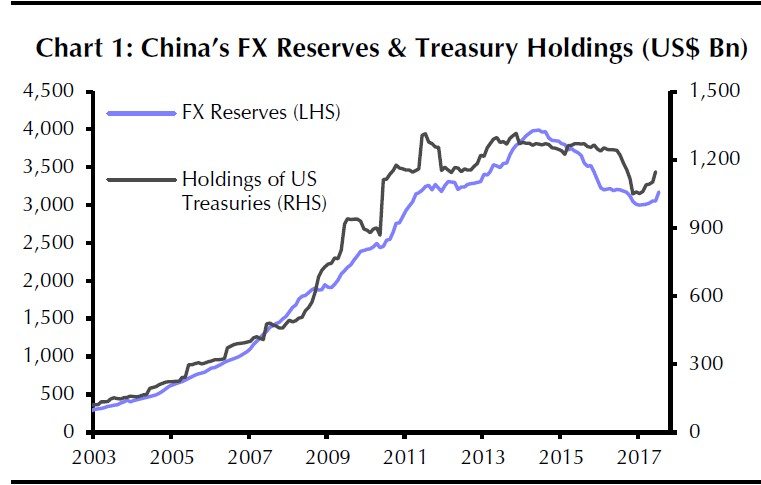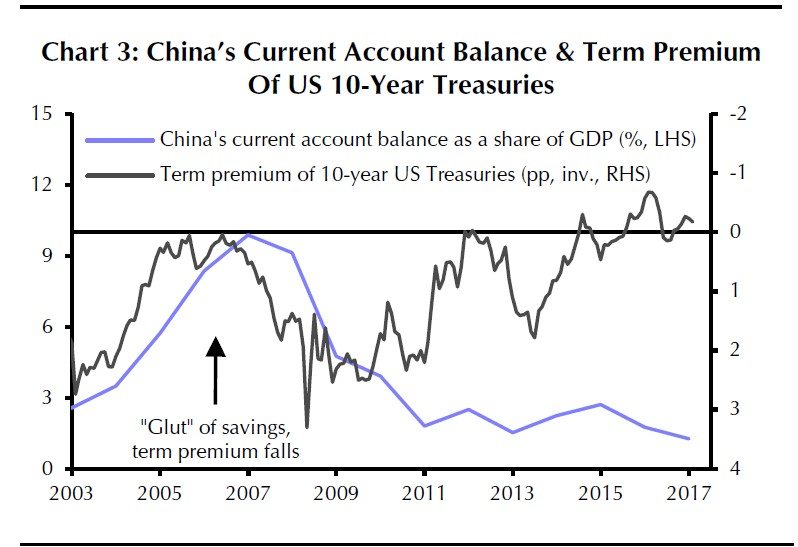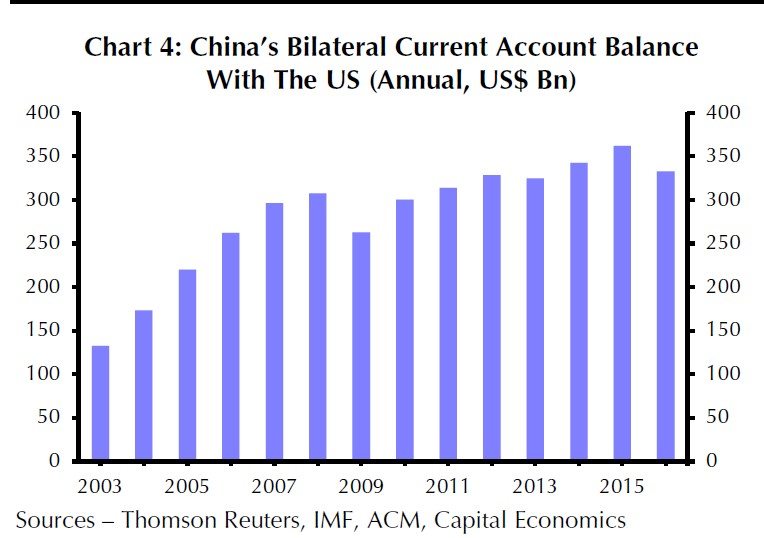The U.S. Federal Reserve has been in a gradual tightening cycle for some time as policymakers nudge interest rates higher and taper other quantitative easing (QE) measures. As they got started, China US Treasury holdings rose the most in June than they have in any other month over the last six years, and some economists warned that if this continues, it will keep bond yields low, even as the Fed is trying to raise yields.
However, Capital Economics says that even if China keeps snapping up US Treasuries at a rapid-fire pace, bond yields won’t remain low. Instead, the firm says that the Fed will be the one driving yields and not China.
China US Treasury holdings surge over the summer
Labor Day marks a sort of unofficial end of the summer in the U.S., and as the summer has gone on, China US Treasury holdings have been going up. By mid-August, the country had again become the biggest foreign holder of US Treasury notes. China held $1.15 trillion worth of Treasuries in June, an increase of $44.3 billion from May, according to data from the Treasury Department.

By comparison, Apple (NASDAQ:AAPL) holds only $52.6 billion in U.S. Treasuries, and that's still much more than many major countries, according to CNBC.
Japan held $1.09 trillion after selling $20.5 billion in Treasuries between May and June. Bloomberg reported that Japan overtook China in October 2016 to become the biggest holder of U.S. government bonds, so China's mad grab of government bonds over the last several months has enabled it to regain that position. China and Japan together hold more than one-third of the Treasuries that are held by foreign entities.
Bad memories
For many investors, the steady rise in China US Treasury holdings has sparked memories of a similar trend that happened during the 2000s. That decade was marked by the dotcom bubble and ended with the U.S. economy in a financial crisis. Thus, it's no wonder investors are worrying, especially given how many other economic indicators are similar to what they were in 2007 and in the lead-up to the financial crisis.
Capital Economics Assistant Economist Oliver Jones highlighted the similarities between the current increase in China US Treasury holdings and the trend during the 2000s. He noted that during that decade, the increase grew steadily for years because policymakers were trying to keep the renminbi from increasing versus the dollar. The uptrend coincided with a large increase in China's current account surplus as well.

Jones noted that many others have argued that China's rapid buying of U.S. Treasuries was one of the main reasons that yields held steady from 2004 to 2006, even though the Fed raised interest rates significantly.
"Indeed, the 'term premiums' of US Treasuries — which reflect the influence on yields of all factors other than expectations for US interest rates — collapsed as China's current account surplus ballooned," he explained.
Why bond investors shouldn't worry about China US Treasury holdings
However, Jones doesn't believe investors should worry about a repeat of the mid-2000s Treasury market, even though China US Treasury holdings climbed so steeply in June. He noted that China's current account surplus isn't nearly as big as it was at that time, so he doesn't believe that the renminbi is "significantly undervalued" now like it was then.
Additionally, he believes that policymakers in China might now be willing to let the renminbi appreciate versus the dollar somewhat, especially because of the "scrutiny that China's still-large bilateral current account surplus with the US has attracted."

Thus, he doesn't believe China to keep adding to its US Treasury holdings so fast, and as a result, he's forecasting US Treasury yields to rise from 2.25% to 3.25% by the end of next year. He believes the Fed will raise interest rates more than what the markets are expecting.
Here's why China may have been buying Treasuries
Jones isn't the only economist trying to calm investor fears about China US Treasury holdings. Several others are suggesting reasons why China may be buying Treasuries right now, and the biggest one has nothing to do with holding the renminbi back against the dollar.
For example, Deutsche Bank) Chief International Economist Torsten Slok believes that the purchase levels could be linked to foreign currencies. Because the U.S. dollar has weakened, China could get back to buying Treasuries, so he predicts that the Chinese will keep buying if the dollar stays weak. And China's not the only foreign entity buying Treasuries, foreign demand remained strong over the summer.
Investors' biggest concern about China's purchases of Treasuries is that they will keep yields low, but Slok sees demand from China and emerging markets as third on the list of importance when it comes to driving yields. U.S. inflation and the European Central Bank's QE tapering are first and second on the list, according to him.
